The trend of the “sleepy girl mocktail” on TikTok has gained popularity, with influencers claiming that a mix of seltzer, tart cherry juice, and magnesium powder can lead to a restful night’s sleep.
While there might be some merit to individual claims about the ingredients promoting sleep, the scientific evidence supporting the combined effects of these components, as presented in the mocktail, is lacking.
Influencers on TikTok have showcased the mocktail as a remedy for achieving a sound night’s sleep, garnering millions of views.
Despite the popularity of the trend, individuals should approach such claims with caution, emphasizing the importance of evidence-based practices for addressing sleep-related concerns.
Analyzing the ingredients in the Sleepy Girl Mocktail
The Sleepy Girl Mocktail, comprising seltzer, tart cherry juice, and magnesium powder, has gained attention on TikTok with claims of promoting better sleep. Scientifically, the ingredients hold some promise:
- Magnesium: Magnesium is involved in various bodily functions related to sleep, including neurotransmitter regulation. Magnesium deficiency has been linked to sleep issues, and supplementation may improve sleep problems and insomnia.
- Tart Cherry Juice: Rich in melatonin, a sleep-promoting compound produced in response to darkness. Tart cherries also contain anthocyanins and tryptophan, supporting melatonin production in the brain.
- Seltzer and Hydration: While seltzer itself doesn’t directly aid sleep, maintaining proper hydration is crucial. Dehydration can reduce melatonin production and disrupt the biological clock, impacting sleep.
Each ingredient has potential sleep-related benefits, but it’s essential to note that scientific evidence supporting the combined effects of these components in the mocktail is limited.
Individual responses to such combinations may vary, and caution is advised in relying solely on social media trends for sleep-related concerns.
While there is some scientific basis for individual ingredients, there’s insufficient direct evidence supporting the combined effects as presented in the Sleepy Girl Mocktail trend.
Sleepy Girl Mocktail vs. Cocktail
While the specific quantities of water, magnesium, and cherry juice in a Sleepy Girl Mocktail might not individually guarantee significant sleep benefits, there could be advantages in adopting this non-alcoholic, caffeine-free beverage:
- Substitute for a Cocktail: Choosing the mocktail over a cocktail may contribute to better sleep. Alcohol and caffeine, common components of cocktails, can disrupt sleep patterns. Opting for a calming mocktail might avoid these disruptions.
- Sleep Hygiene and Rituals: Incorporating a nightly routine, such as consuming a sleep-promoting mocktail, can contribute to good sleep hygiene. The ritual signals to the body that it’s time to wind down, aiding the transition into sleep.
The psychological aspect, often referred to as the placebo effect, plays a significant role in sleep hygiene.
The mocktail’s direct impact may be influenced by psychological factors and individual responses, but adopting a soothing bedtime routine is generally recognized as a positive practice for promoting better sleep.
If the mocktail serves as a substitute for a cocktail, it could contribute to improved sleep.
The best foods and drinks for restful sleep
If you’re looking to enhance your sleep through foods and drinks, here are some of the best ones you can try:
- Herbal Teas: Opt for noncaffeinated herbal teas like chamomile, valerian root, or lavender, known for their traditional use in promoting calmness and sleepiness.
- Bananas: Rich in potassium and magnesium, bananas may help relax muscles and nerves, contributing to a more restful sleep.
- Almonds and Walnuts: These nuts contain magnesium and melatonin, contributing to potential improvements in sleep patterns.
- Warm Milk: A classic remedy that may have a comforting effect, possibly due to the association with warmth and childhood comfort.
- Kiwi: Consuming kiwi before bedtime may improve sleep onset, duration, and efficiency, thanks to its antioxidant properties and serotonin content.
- Fatty Fish: Fish such as salmon and mackerel, high in omega-3 fatty acids and vitamin D, have been linked to enhanced sleep quality.
Incorporating these sleep-friendly options into your evening routine may contribute to a more relaxed and restful night’s sleep.
Foods and drinks to avoid in order to get good sleep
When aiming for a good night’s sleep, it’s essential to be mindful of foods and drinks that can potentially disrupt your sleep. Consider avoiding the following, especially before bedtime:
- Spicy Foods: Spicy foods can trigger heartburn and indigestion, creating conditions that are not conducive to a restful night’s sleep.
- Caffeine: Found in coffee, tea, chocolate, and some soft drinks, caffeine should be avoided for four to six hours before bedtime, as it can hinder your ability to fall asleep.
- Heavy Meals: Large or rich meals consumed late in the evening can cause discomfort and indigestion, both of which may interfere with your ability to sleep soundly.
- Sugary Foods and Simple Carbohydrates: Consumption of sugary foods and simple carbohydrates may lead to a spike in blood sugar levels, potentially causing wakefulness and disrupting your sleep.
- Alcohol: While it may initially help you fall asleep, alcohol often reduces sleep quality and can lead to wakefulness later in the night.
Being mindful of your diet, particularly in the hours leading up to bedtime, can contribute to better sleep hygiene and an improved overall sleep experience.
7 tips for better sleep
Promoting good sleep hygiene involves adopting healthy habits and routines that contribute to restful and quality sleep. Here are 7 tips you can apply to get better sleep:
- Regular Sleep Schedule: Maintain a consistent sleep schedule by going to bed and waking up at the same time each day. This helps regulate your body’s internal clock.
- Sleep Environment: Create a conducive sleep environment with factors like quietness, darkness, and cool temperatures. Consider using tools like earplugs, a fan, or a white noise machine.
- Limited Screen Time: Reduce exposure to the blue light emitted by electronic devices (phones, tablets, computers) at least an hour before bedtime, as it can interfere with melatonin production.
- Physical Activity: Engage in regular physical activity, but avoid exercising too close to bedtime. Regular exercise promotes faster sleep onset and deeper sleep.
- Stress Management: Manage stress through techniques such as meditation, deep breathing, and progressive muscle relaxation to ease stress and promote better sleep.
- Avoid Naps: If you have difficulty falling asleep at night, avoid napping, especially in the afternoon.
- Pre-Sleep Routine: Establish a consistent pre-sleep routine involving calming activities to signal to your body that it’s time to wind down and prepare for sleep.
Key takeaways
Regardless of whether you incorporate a sleepy girl mocktail into your bedtime routine, prioritizing good sleep hygiene is essential.
Sleep should be considered one of the three key pillars of overall health, alongside a nutritious diet and regular exercise.
By recognizing the interconnectedness of sleep, diet, and exercise, individuals can adopt holistic approaches to promote overall well-being and optimal health.


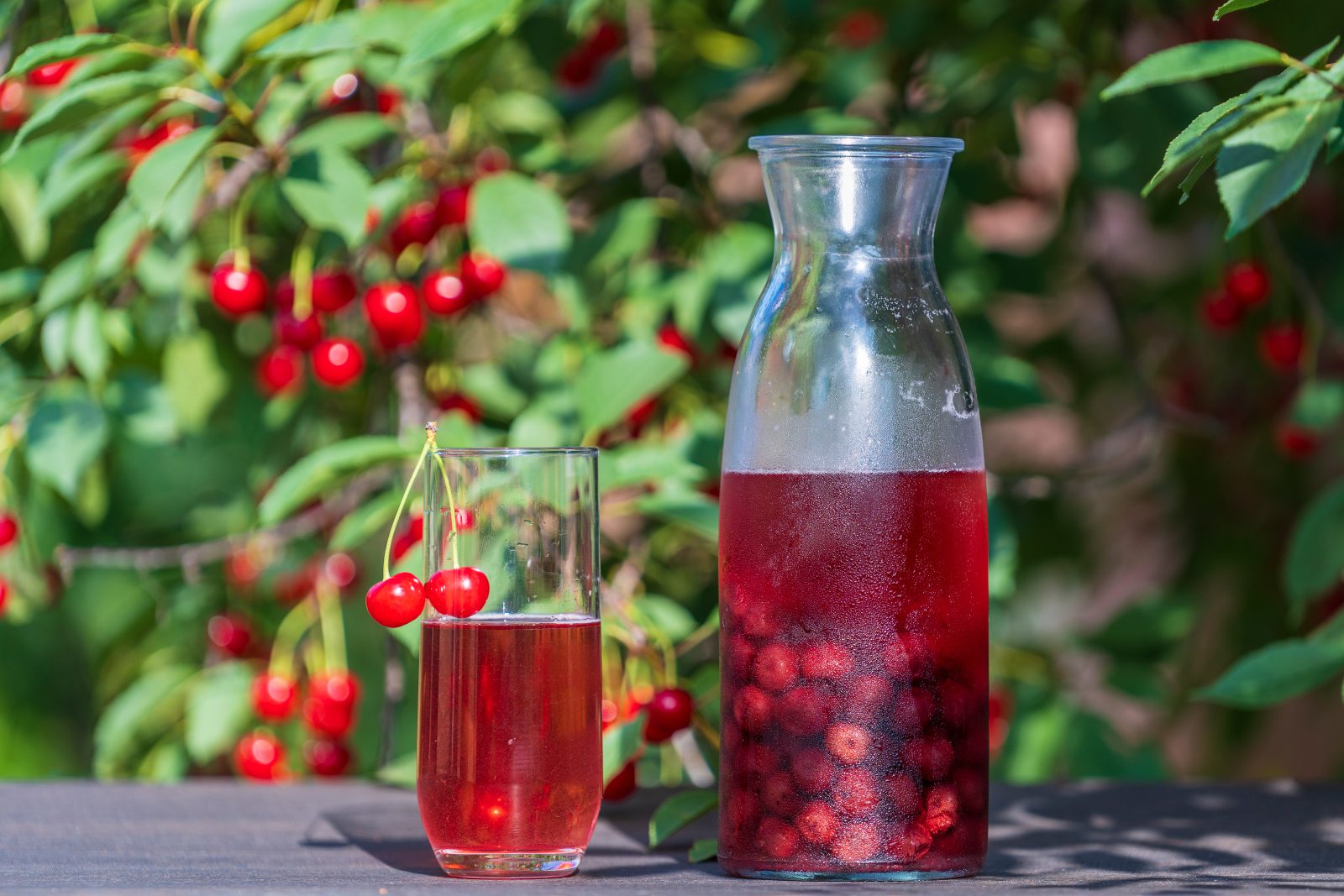
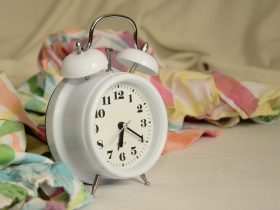








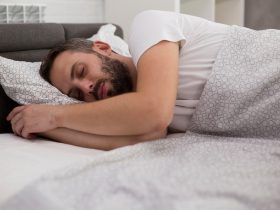
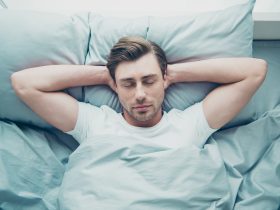
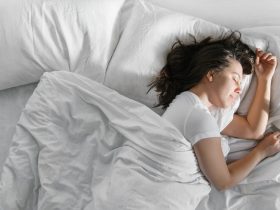
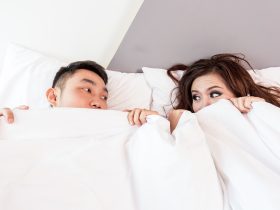
Find Us on Socials